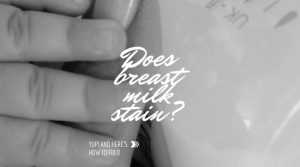On a good day, being sick can feel like a plain old bummer. When you are a mother, though, it’s darn near close to a disaster, and all you want is relief so that you can keep on parenting another day. So you reach into your medicine cabinet and study its contents when reality hits you.
You are not just a mom who has a cold. You are a mom who has a cold and is breastfeeding. But wait! You don’t need to slink away from that medicine cabinet and resign yourself to fevers and sniffles for the next week or two.
While you might find your options for cold symptom relief are not as robust as they were pre-pregnancy, there are still plenty of cold remedies available for breastfeeding mothers.
In this article:
Before taking any medication
Check with your doctor:
- Make sure you know what the active ingredient is
- Check proper dosing levels
- Be prepared to monitor your baby for any behavioral or medical changes
Cough medicine
Where there’s a cold, there is usually an associated cough. While it can be tempting to grab your go-to cough suppressant, when breastfeeding you have to be careful about what you are putting in your body.
You don’t want to share everything with your baby! Unfortunately, even ‘breastfeeding safe’ drugs carry some risks, so it’s highly advisable to speak to your doctor before starting any type of medication.
Pseudoephedrine – Thought to be mostly safe, this drug can pass into breast milk and to your nursing baby. Evidence suggests it will have little to no effect on your child, although irritability has been noted in some babies who had ingested pseudoephedrine.
While helpful, this drug can affect your milk supply, so mothers who are experiencing lactation issues might want to avoid it altogether.
Dextromethorphan – Although considered one of the safer pharmaceutical options for managing a cough, there is still the possibility that this drug can transfer to your breast milk, and thus to your baby. You will have to keep an eye on him/her for any unusual drowsiness or decrease in appetite while using this drug.1Over-The-Counter Treatments for Cough and Cold infantrisk.com/content/over-counter-treatments-cough-and-cold
Benzonatate – Unfortunately, there is not enough research on this drug for anyone to cast a yea or nay vote on whether it’s safe for breastfeeding moms. With that said, rather be safe than sorry.2Differences in Organic, Natural, and Health Foods healthychildren.org/English/healthy-living/nutrition/Pages/Differences-in-Organic-Natural-and-Health-Foods.aspx
Codeine – This is a no-no for breastfeeding moms. The body converts codeine to morphine and, in some cases, this happens very quickly. These people are called “ultra-rapid metabolizers of codeine” and, if you happen to be one, your baby could actually overdose on morphine after breastfeeding.3Cough And Cold Combinations (Oral Route)Print
mayoclinic.org/drugs-supplements/cough-and-cold-combinations-oral-route/before-using/drg-20061164
Related: 5 Go-To Recipes for Breastfeeding Moms
Pain and fever medications
If sick, you’re probably feeling a few aches and pains, and might even run a fever. The good news is that there are some options for relief.
Acetaminophen (e.g. Tylenol) – This is safe for breastfeeding mothers because, while it can pass to your milk, it does so in very low levels. You can take up to the maximum recommended daily dosage without harming your baby. Kanabar, D., Dale, S., & Rawat, M. (2007).
A review of ibuprofen and acetaminophen use in febrile children and the occurrence of asthma-related symptoms. Clinical therapeutics, 29(12), 2716-2723. healthline.com
Ibuprofen (e.g. Advil, Proprinal, Motrin) – Also considered safe due to its low breastmilk transference rate, you can take the maximum daily dosage for relief from your discomfort.4Kanabar, D., Dale, S., & Rawat, M. (2007). A review of ibuprofen and acetaminophen use in febrile children and the occurrence of asthma-related symptoms. Clinical therapeutics, 29(12), 2716-2723.
healthline.com
Asprin – Sorry, but this, too, is a no-go for breastfeeding mothers. There is a distinct possibility, as proven through several studies, that the use of aspirin is linked to the development of Reye’s Syndrome in children. Reye’s Syndrome can lead to swelling in the brain and liver damage, so is not something you want to risk.5Aspirin and Breastfeeding
reyessyndrome.org/breastfeeding.html
Nasal sprays
While not always fun to administer, nasal sprays can be a miracle if you develop some serious nasal congestion. It’s important to remember that nasal sprays are recommended as short-term remedies only. Using them for over three days puts you at risk of the ‘rebound effect’, which can actually make your congestion worse.6Can You Overuse Nasal Spray? www.webmd.com/allergies/features/nasal-spray-are-you-overdoing-it#1
Xylometazoline (e.g. Otrivine) – While it’s not known if this drug passes into breast milk, there have been no recorded incidents of it causing harm to breastfeeding mothers or their children. However, rather be safe than sorry.7Castellano, F., & Mautone, G. (2002). Decongestant activity of a new formulation of xylometazoline nasal spray: a double-blind, randomized versus placebo and reference drugs controlled, dose-effect study. Drugs under experimental and clinical research, 28(1), 27-35. drugs.com
Oxymetazoline (e.g. Afrin) – Studies are virtually non-existent as to what effect oxymetazoline has on breastfeeding mothers. As such, we recommend talking to your doctor before using, while only considering it as a last resort for relief.8Oxymetazoline use while Breastfeeding
drugs.com/breastfeeding/oxymetazoline.html
Related: How to Dry up Your Breast Milk Quickly and Naturally
Home remedies for cold relief
While odds are that you have spent the best part of your life taking cough syrup to relieve cold symptoms, it’s understandable that now, as a breastfeeding mother, you might want to try some non-pharmaceutical options.
Editor’s note:
Nonpharmacologic treatments, like catching up on sleep or a saline rinse, should be considered before trying medications. Because during breastfeeding, keeping it simple can be the best medicine!
Gargling with salt water – This one isn’t just an old wives’ tale; it has science to back it up. Water is attracted to salt, so when you gargle, you are effectively pulling fluid from the surrounding tissue and, with that fluid, are washing some of that nasty virus out.
Unfortunately, it won’t cure your cold, but it will help soothe your throat. To give this method a go, try mixing 1/4 – 1/2 teaspoon of salt into 8 ounces of warm water.912 Natural Treatment Tips for Colds and Flu webmd.com/cold-and-flu/12-tips-prevent-colds-flu-1#1
Editor’s note:
When performing a nasal cleanse (as with a Neti Pot), it’s important to use distilled, and NOT, tap water. Tap water may contain discrete amounts of organisms and minerals that can do damage to your nasal and sinus canals.
Salt water and baking soda nose flush – Why use salt water only as a gargle? By mixing 1/4 teaspoon of baking soda and 1/4 teaspoon of salt into 8 ounces of warm water, you’ll create a liquid that can remove some viral and bacterial particles from your nasal passages, while breaking up the mucus that causes congestion.
To flush your nasal passages, use a nasal irrigation kit (like a Neti Pot) or a good old-fashioned bulb syringe. Plug one nostril, administering the flush through the unplugged nostril, and repeat up to three times before switching sides.1012 Natural Treatment Tips for Colds and Fluwebmd.com/cold-and-flu/12-tips-prevent-colds-flu-1#1
Steamy shower – Okay, so I can’t exactly point you to a study that says, in no uncertain terms, that steam helps clear up congestion and is a miracle cure for a cough. I can tell you, however, that many mothers before us have passed down the sage advice of standing in a hot shower when feeling unwell.
I can also tell you that it’s a great excuse to stand in the shower for an extra ten minutes! Hey, if nothing else, it will relax you and moisturize those nasal passages.118 Tips to Treat Colds and Flu the ‘Natural’ Way
webmd.com/cold-and-flu/8-tips-to-treat-colds-and-flu-the-natural-way#1
Rest, rest, rest – I know, I might as well have just told you to fly into space and bring home a sack of moon rocks. But seriously, your body is fighting the good fight and trying to get you well ASAP. If at all possible, have a relative or friend pop over to watch the little one while you catch a little extra sleep.
If not averse to a bottle, pump some breastmilk and let your partner take care of the PM feedings for a few days. Do all you can to catch some extra ZZZs.
Related: Does Breastmilk Stain? (Yep! and Here’s how to Remove It)
Vitamins and minerals
It’s good to use natural remedies to speed along your recovery, but remember, just because something is labeled a vitamin or mineral doesn’t mean it’s necessarily safe for breastfeeding mothers, or that it won’t impact your baby. Consult your doctor or lactation counselor before adding minerals or vitamins to your daily routine.
Vitamin C – Who doesn’t want to chug orange juice when they’re feeling ill? A little extra vitamin C when you are nursing is fine, but don’t overdo it; taking too much vitamin C can result in headaches, vomiting, or even kidney stones.
The upper tolerance level is generally considered to be about 2,000 milligrams for women over 18 and 1,800 milligrams for those under 18.12Vitamin C for the Common Cold webmd.com/cold-and-flu/cold-guide/vitamin-c-for-common-cold#1
Zinc gluconate – This mineral has long been thought to shorten or prevent illness, but the science remains inconclusive. Often found in lozenges or nasal sprays, it’s considered safe for breastfeeding mothers in doses up to 50 milligrams.13Zinc for colds: The final word?
mayoclinic.org/diseases-conditions/common-cold/expert-answers/zinc-for-colds/faq-20057769
Herbal remedies – While herbal remedies can be great, they are not always the appropriate answer for breastfeeding mothers. Some herbs can affect your milk supply or even put you or your child at risk of overdose if taken too much or too often.
Discuss all herbal remedies with your doctor or lactation consultant.14Natural Cold Remedies While Breastfeeding
hellomotherhood.com/article/505621-natural-cold-remedies-while-breastfeeding/
Wrapping up
Just because you are a breastfeeding mother does not mean that you’ll have to suffer without relief from your cold.
Whether it’s saltwater flushes, steam, or good old-fashioned rest, it’s still possible to feel better without medication; though, if or when you do, the chances are good that you’ll find something safe for you and your child.
Whether it is a good old cough syrup or nasal spray, just remember to consult with a doctor or lactation specialist to check that what you’re taking is safe for both you and your baby.
There’s never any shame in falling sick occasionally, or, indeed, in seeking help with your baby. Just being a mother makes us into superheroes in many ways. Unfortunately, being impervious to germs is not one.








